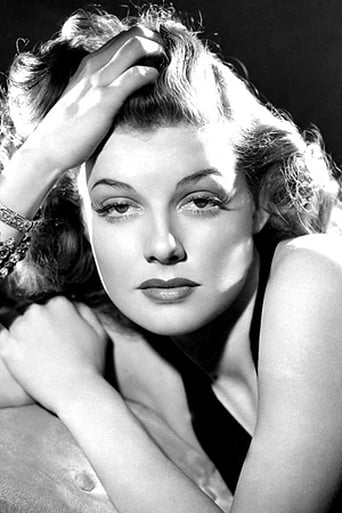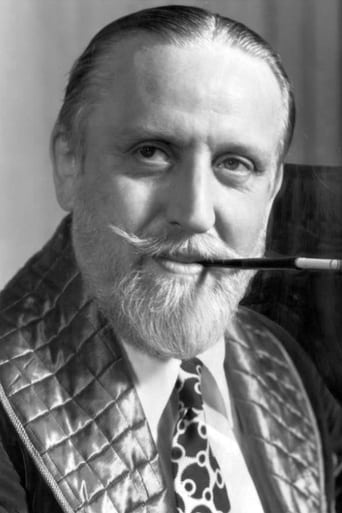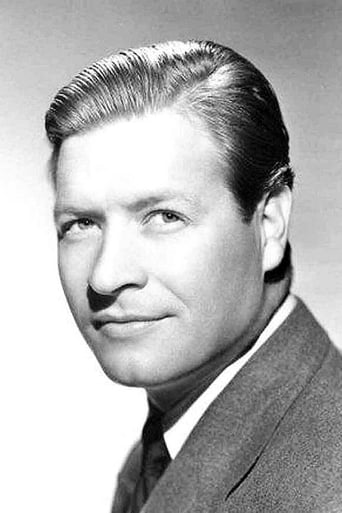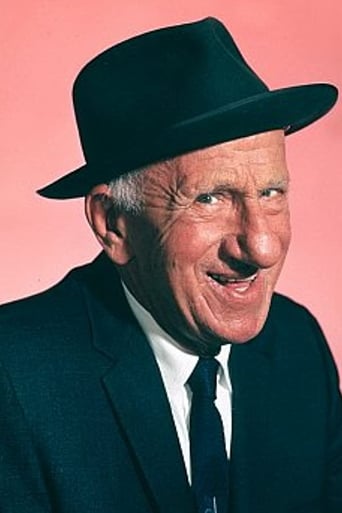Moustroll
Good movie but grossly overrated
Glucedee
It's hard to see any effort in the film. There's no comedy to speak of, no real drama and, worst of all.
Matylda Swan
It is a whirlwind of delight --- attractive actors, stunning couture, spectacular sets and outrageous parties.
Roxie
The thing I enjoyed most about the film is the fact that it doesn't shy away from being a super-sized-cliche;
Christmas-Reviewer
BEWARE OF BOGUS REVIEWS. SOME REVIEWERS HAVE ONLY ONE REVIEWED ONE FILM. WHEN ITS A POSITIVE REVIEW THAT TELLS ME THEY WERE INVOLVED WITH THE FILM. IF ITS A NEGATIVE REVIEW THEN THEY MIGHT HAVE A GRUDGE AGAINST NOW I HAVE REVIEWED OVER 200 HOLIDAY THEME MOVIES. I HAVE NO AGENDA. I AM FARE ABOUT THESE FILMS.During a cross-country lecture tour, notoriously acerbic radio personality Sheridan Whiteside (Monty Woolley) slips on the icy steps of the house of the Stanleys (Grant Mitchell and Billie Burke), a prominent Ohio family, and insists on recuperating in their home during the Christmas holidays. The overbearing, self-centered celebrity soon comes to dominate the lives of the residents and everyone else who enters the household. He encourages young adults Richard (Russell Arms) and June (Elisabeth Fraser) Stanley to pursue their dreams, much to the dismay of their conventional father Ernest.This is a classic film. Its very funny and should be made mandatory viewing! Films today are no longer made this way and that is sad. In 50 years people will still be watching this. Will they still be watching "Office Christmas Party"
gavin6942
When acerbic critic Sheridan Whiteside slips on the front steps of a provincial Ohio businessman's home and breaks his hip, he and his entourage take over the house indefinitely.Four of the leading characters are based on real-life personalities. Sheridan Whiteside was inspired by celebrated critic and Algonquin Round Table member Alexander Woollcott, who eventually played the role on stage; Lorraine Sheldon, by musical stage actress Gertrude Lawrence; Beverly Carlton, by playwright and renowned wit Noël Coward; and Banjo, by Harpo Marx.Whiteside comes off as a cross between WC Fields (with his witty remarks) and the Simpsons' Comic Book Guy (with his mocking condescension). He is both a joy to watch, and simultaneously a wretched monster to be reviled. The romance is really the thread that ties everything together, but it hardly carries the film the way Whiteside does.
surangaf
This movie is about an art critic and radio personality, supposedly 'wonderful', 'charming', 'clever', and 'witty'(or so other characters keep telling he is, when he in fact opposite of all of them), meeting with an accident during a lecture tour in American Midwest, his taking over the house of his businessman host, and his selfish (one of his 'endearing' traits by testimony of characters in the movie) interferences in the lives of all he comes into contact.If ever there was movie that can be called dated, this is it. It was made to reflect and entertain particular set of people. Most of them and their work were, though now thankfully forgotten, then influential in so called theater, art, and intellectual, circles of USA, based mainly in New York and Hollywood.As is to be expected, movie looks down on so called 'flyover country' and its values. That in itself may not be a bad thing, but is not a good idea if one is stupider and empty headed than people one is looking down on.No matter how hard one tries one can't make superficial cliché words turn lukewarm water into acid that burns, or wine that delights. Writers of this play turned movie were not Oscar Wilde, and it shows. Especially in contrast when they borrow a few lines from him.Protagonist's much praised wit seems to consist mostly in verbal threats of slapstick violence against various victims. As such it is even more ephemeral than actual slapstick, which at least has some physical substance. Almost all of his victims do not resist (this is another giveaway that this movie is a coastal elite fantasy since actual people in middle of USA are not known for passive submission, quite the contrary). When his sectary, Bette Davis, give him a talking to, she is as mild and ineffective as other token resistance from others towards the end. In fact, given that she has very willingly worked for him for 10 years, before objecting to what she has seen, only conclusion that can be drawn is that her character is extremely stupid. Movie shows its stage origins. But then people who produced this can't be very imaginative or creative to begin with.It does have the polished production values expected of a studio product, and has a competent enough cast, though as expected during that period, most of them overact (in the case of the lead, Monty Woolley, atrociously).This almost completely wordy movie, drops names and makes allusions, to then current celebrities, and would be celebrities, in every other sentence. Most of the references have been unintelligible to most viewers since shortly after the movie was made. Its characters were also supposedly based on specific real people, people long dead and buried now, deservedly so, as viewers of this movie soon realize.
Frank Cullen
Robert Osborne of TCM said that Warners intended John Barrymore but the Great Profile was too ill by 1942) for the role of Sheridan Whiteside (whose real life model was columnist & broadcaster Alexander Woolcott. Monty Woolley, who originated the role on Broadway (if one can originate what is a copy of the original) brought his smart performance from stage to screen. Others including Clifton Webb, Orson Welles, Simon Callow, Vincent Price and Nathan Lane have attempted the role with various degrees of success, and no doubt Barrynmore would have been great in the juicy, flamboyant role. Indeed, The Man Who Came to Dinner (MWCD), like all scripts written by George S. Kaufman and his various collaborator (Edna Ferber, Mac Connolly and Moss Hart) offers a great roles for all its actors. The screen cast was excellent, especially Reginald Gardiner who, in the role of Mr Beverly Carlton) captured Noel Coward perfectly. Gardiner and Monty Woolley recreated their roles for TV in 1954 (CBS' Best of Broadway 1954). Surprising to me was that Bette Davis actually underplayed and fit very nicely into the ensemble as the sane counterweight to a bunch of madcap egoists. Ann Sheridan sparkled in the slightly unpleasant role based on Gertrude Lawrence. And when did Billie Burke ever disappoint? Jimmy Durante played Banjo (based on Harpo Marx who, as a bachelor, palled around with the same sophisticated set in real life). Davey Burns created Banjo on Broadway, but Durante worked as a more famous casting choice, though in the 1954 Best of Broadway TV revival of this play, Banjo was played by Bert Lahr, and I preferred Lahr's performance. Although Mary Wickes was perfect as the nurse (she played the role in the Broadway production as well as in the film), Zasu Pitts was even more suited to the nurse ("Miss Bedpan!") role in the telecast, and casting Buster Keaton as the doctor in the TV version was brilliant. Most Kaufman plays, including MWCD, written with various partners (who probably supplied structure), remain playable and funny today. He was a master.





